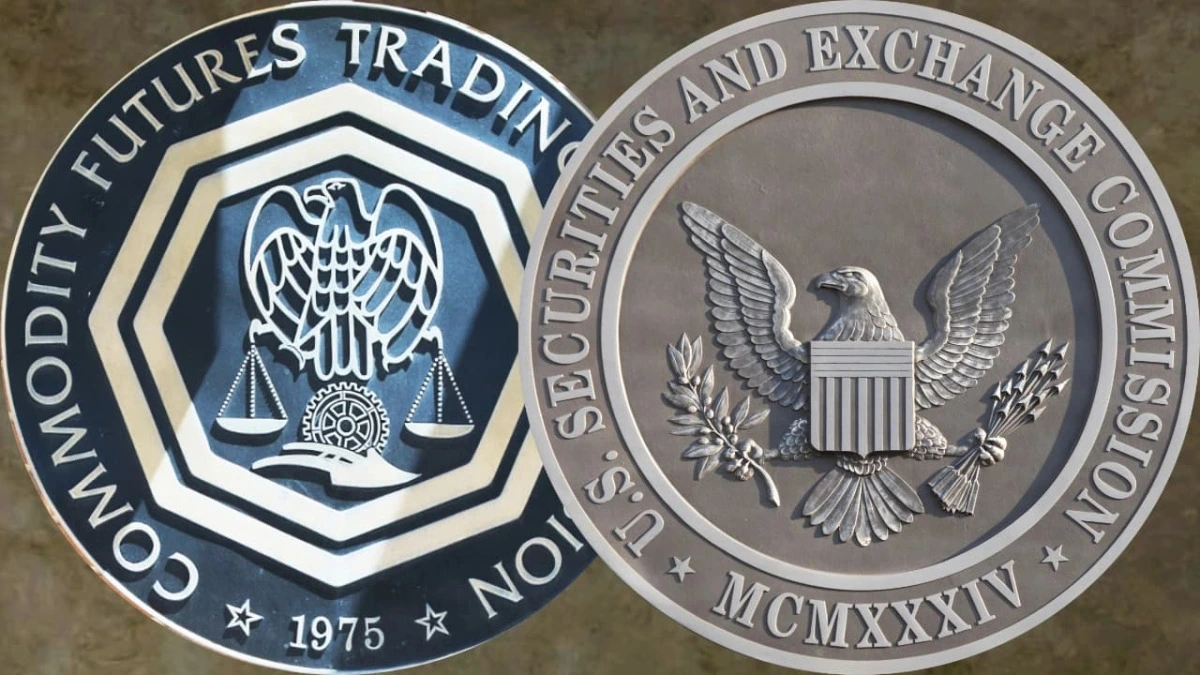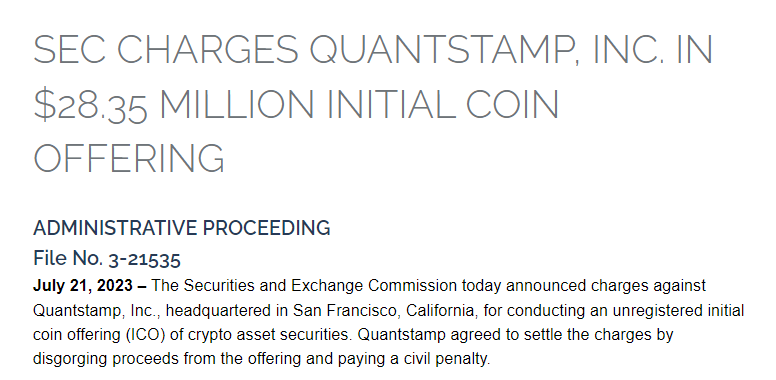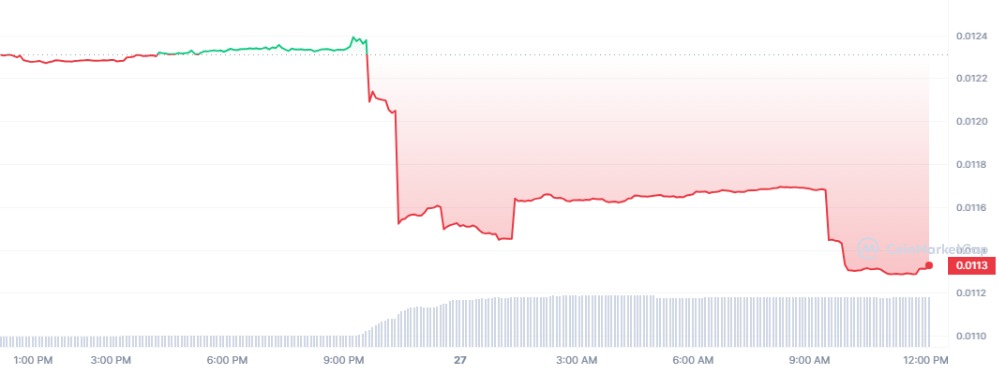After the recent legal dispute between the US Securities and Exchange Commission and Ripple, the institution has now turned its attention to a web3 coin project. The SEC has turned its focus to blockchain security firm Quantstamp, filing allegations of breaches stretching back six years. The Commission claims that Quantstamp has convinced investors by promising that the token value will increase in proportion to the success of the project. Here are the details…
SEC is chasing altcoin institutions
The SEC accused Quantstamp of conducting an unregistered initial coin offering (ICO) of crypto securities in 2017, according to a notice issued July 21. The startup allegedly raised more than $28 million by selling QSP tokens to around 5,000 investors to support the development of an Ethereum Blockchain technology for automated security audits of smart contracts. Quantstamp is accused of attracting QSP buyers with the promise that the value of the tokens will increase in line with the success of the business. According to a recent Commission press release, following the ICO, the company took steps to enable trading of tokens on third-party crypto-asset trading platforms.

According to the commission, despite QSP’s claims that its unregistered sales were exempt from registration, Quantstamp failed to meet the requirements for any exemption. Quantstamp agreed to a compromise as a result of the charges without accepting or rejecting the Commission’s findings. Under the terms of the settlement, the entity must pay approximately $2.5 million in disgorgement and injunctive interest, as well as $1 million in civil penalties.
What exactly is the problem with Web3 coin?
The platform intended to use the money from the initial coin offering (ICO) to “develop and market” the automated smart contract security auditing platform. The commission’s decision highlighted the organization’s conclusion that Quantstamp’s service highlighted the “huge market potential”, leading QSP buyers to expect the value of their token to rise. According to the Regulatory Commission, Quantstamp was unable to register the issuance and sale of QSP tokens that the organization considered securities.

The SEC’s order found that Quantstamp violated the registration provisions of federal securities laws. Quantstamp agreed to issue a cease and desist order and pay a $1,979,201 disgorgement, $494,314 biased interest and a $1 million civil penalty, without accepting or rejecting the commission’s findings. In addition, the decree provides for the establishment of a “Fair Fund” to reimburse affected investors. In addition, the company has agreed to transfer its own QSP token assets to the Fair Fund manager and “permanently disable or destroy” the tokens.
Quantstamp does not support smart contract security auditing
Quantstamp no longer manages or actively supports automated smart contract security auditing since its deployment in June 2019. Interestingly, this settlement came about a week after a US district judge delivered the long-awaited ruling on the Commission’s allegations against Ripple regarding the sale of the XRP token. The court applied the Howey test to determine whether XRP qualifies as an investment contract and therefore a security under federal law.
cryptocoin.com As we have also reported, exchange-traded XRP is not considered a security, while institutional sales of the asset are considered an unregistered security offering. Similarly, the Commission stated that QSP buyers had a “reasonable expectation of profit from Quantstamp’s efforts,” which led to claims against the blockchain security company. Currently, the QSP price has experienced a 7 percent drop.








